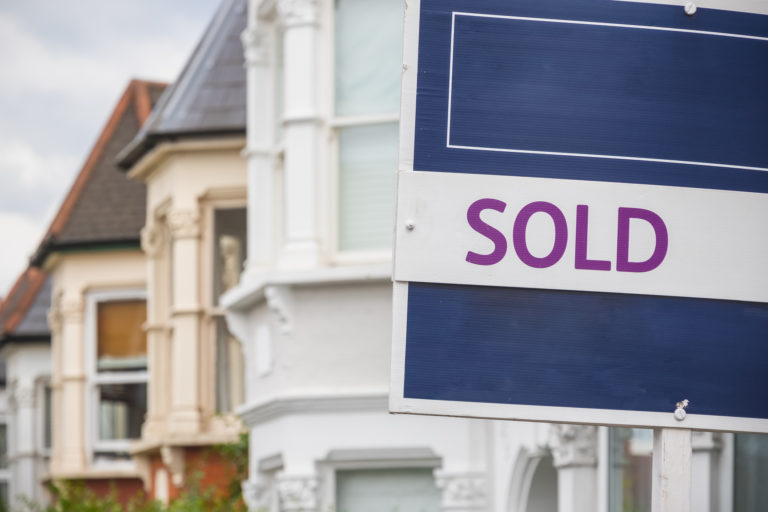New Chancellor Rishi Sunak pledged to “get Britain building” in his first Budget speech yesterday. Here are some of the key points for the property market.
After weeks of speculation on how Rishi Sunak would plan for the future of the UK housing industry, his speech yesterday tackled some of the big issues.
Unsurprisingly, coronavirus took centre stage as one of the biggest challenges the country – and the world – is facing right now. For this, he promised a £5bn emergency fund for the NHS, hardship funds for councils and help for small businesses, among other measures.
Stamp duty announcement
For the housing industry, there was no big announcement on stamp duty in the Budget that we didn’t already know. He announced that the stamp duty surcharge for foreign investors would be set at 2%, starting in April 2021. This gives overseas buyers interested in UK property a solid 12 months to see their transactions through.
The change has been met with mixed reactions in the industry. Some see it as a positive step to open the market more for domestic buyers. Others think it will affect the higher end of the market the most, and also deplete rental stock.
Neil Cobbold, chief sales officer at PayProp, said: “An additional 2% stamp duty surcharge for overseas investors will certainly have an impact on the demand for properties in England’s major cities. We will have to wait and see whether disincentivising overseas buyers causes a shortage of rental homes in the long-term.
“However, additional revenue from this surcharge could pave the way for a reduction or overhaul of the current 3% levy on second homes and buy-to-let properties.”
No change for UK buyers
Stamp duty rates, levies and exclusions remain the same for UK buyers. This could be good news for the housing market in the short-term. Those who had been holding off in case of a change can now push ahead with their purchases.
However, it means that property investors and landlords are still liable for the 3% stamp duty surcharge. While the market has mainly been resilient to this levy, many believe a reduction would stimulate the private rented sector and the housing market in general.
In other tax news, the Treasury is holding corporation tax at 19%. With a growing number of landlords operating through limited companies, this is a key point to factor into future plans.
Planning changes
Rishi Sunak promised a further, more detailed announcement on planning changes from the Housing Secretary. He pledged to “bring our planning system into the 21st century”.
Aside from this, the Budget revealed there will be £400m of additional funding towards building on brownfield sites in the regions across the country. This is a positive sign for property developers in urban areas in particular, where demand has been on the rise. Property investors, homebuyers and private tenants are all more keen than ever to consider well-connected, city centre and town centre locations.
The Chancellor also announced £12bn to extend the affordable homes programme. This will encourage developers to factor affordable housing into their projects. There is also funding worth £1.1bn to build an additional 70,000 homes in areas of high demand across the UK.
More funding for high-rise cladding removal
The cladding scandal has affected hundreds of thousands of people across the country, triggered by the Grenfell Tower disaster in London. The government has now promised a new building safety fund worth £1bn. This will help to remove all unsafe cladding from every private and social residential building above 18 metres high. There will no longer be exclusions for non-aluminium composite material (ACM) cladding.
With more reports recently of people being trapped in unsafe homes, unable to sell, this will be welcome news to many. It will also inspire confidence in buyers considering high-rise properties.
Infrastructure spending to boost housing
The government will spend more than £600bn on roads, rail, broadband and housing by the middle of 2025. This means tripling the average net investment made over the last 40 years in these sectors, as well as broadband and research.
A vast amount of this money will go towards improving rail networks. The Midlands rail hub will receive £20m, while other regional areas will get a significant boost. It also includes £27bn towards the country’s roads and motorways, upgrading 4,000 miles of roads.
The idea is to “level up” parts of the UK, targeting spending away from London and the south-east. For the Northern Powerhouse and Midlands Engine, this is a huge positive step. By improving infrastructure for businesses and residents, the appeal of these areas is set to rise, bringing a boost to the housing markets away from the capital.
Interest rate cuts
The Bank of England’s interest rate cut is a direct response to the effect of coronavirus on the UK economy. By bringing rates down from 0.75% to 0.25%, the hope is that it will cushion the blow of the impact as the crisis extends. It is the first emergency interest rate cut here since October 2008.
Mark Carney, Bank of England governor, said: “The Bank of England’s role is to help UK businesses and households manage through an economic shock that could prove large and sharp, but should be temporary.”
For mortgage borrowers, some may see rates go down as a result. Mortgage rates are already performing at highly competitive levels, so it remains to be seen how this will change.
Similarly, savers may not notice much difference. Savings rates are already extremely low for most people. For most of those with significant sums of money to invest, other avenues such as property investment can already provide better returns than savings accounts. For those tempted by stocks and shares, the recent crashes may have deterred some from investing in these markets.
Industry comment on the 2020 Budget
Ian Larkin, CEO of online mortgage broker Trussle, said: “Today’s Budget and the earlier rate cut from the Bank of England indicate a robust economic response to the threat of coronavirus. We hope that this coordinated, swift action will help to reassure homeowners and maintain mortgage lending.
“Amid the uncertainty linked to coronavirus, we’re continuing to provide advice to our customers. We hope to see lenders providing reassurance that existing mortgage applications will be processed as usual and that they’ll pass on the interest rate decrease as appropriate.
“We’re also supportive of the Chancellor’s extension of the Affordable Homes Programme to £12.2bn and expect it will inject welcome activity in the UK housebuilding sector.”
Nigel Purves, COO at Wayhome, said: “It would be surprising if coronavirus hadn’t dominated Rishi Sunak’s first Budget – considering the scale of its contagion in recent weeks.
“However, as the Chancellor said, ‘Coronavirus is not the only challenge facing the country’. While he’s cut taxes and turned on infrastructure spending taps, it’s clear that not enough has been done for housing. This is particularly the case for the millions of ‘reluctant renters’ – credit-worthy people simply unable to buy a suitable property appropriate for their needs.
“Building new homes is one thing – but with demand rising, there needs to be a concerted effort to help people get on the path to homeownership.”










